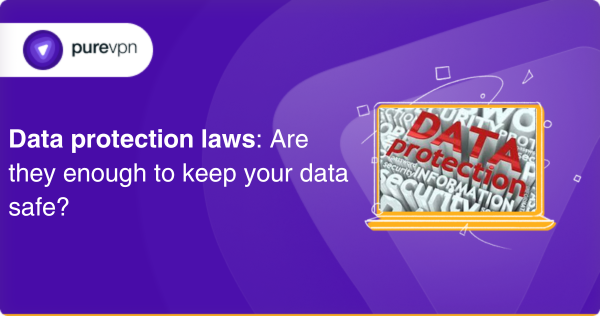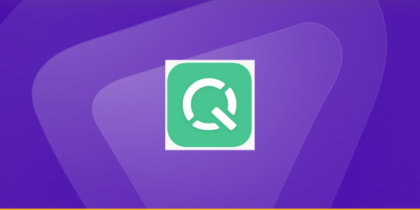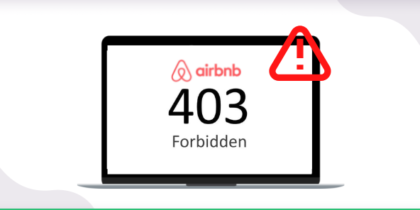Table of Contents
Data protection laws are becoming increasingly important in the digital age, where personal data is collected and stored online. With the rise of cyberattacks and data breaches, it’s critical to ensure that your data is secure and can be restored in the event of a loss or system failure.
In this article, we’ll go over global data protection laws, the significance of World Backup Day, and how you can keep your data protected and safe. We’ll look at how different countries rank in terms of data privacy, as well as their data protection legislation, data transfer mechanisms, and enforcement.
Hopefully, you will have an understanding of data protection rules around the world and how you can keep your data safe by the end of this article.

Data protection laws statistics
- More than 130 countries have data protection regulations in place as of 2021. (source: PrivacyHQ)
- The General Data Protection Regulation (GDPR) of the European Union has become the global standard for data protection, with many countries designing their regulations after it. (Source PrivacyHQ)
- California’s Consumer Privacy Act (CCPA) became the first state-level data privacy regulation in the United States in 2020, with Virginia and Colorado following suit in 2021. (Source i-Sight)
- According to a Pew Research Center research, 79% of Americans are concerned about how firms utilize their data. (source: Pew Research Center)
- Data breaches are expected to cost $2.1 trillion globally by 2021, up from $1.4 trillion in 2019. (source: Juniper Research)
These findings emphasize the significance of privacy regulations in today’s digital landscape, as well as the need for individuals to take proactive steps to secure their data.
World data privacy rankings
According to privacyhq.com, a website that provides a thorough ranking of data protection legislation in various nations, Europe has the best data protection regulations, with countries such as Germany, Austria, and Spain placing first. The United States, on the other hand, has a mixed record, with California placing highly thanks to the California Consumer Privacy Act, but other states’ data protection legislation being more limited.
It should be noted that data privacy rules are continually changing, and nations that are currently ranked poorly may strengthen their policies in the future. It’s also important to remember that data protection regulations simply serve as a framework for firms to follow, and it’s up to individual businesses to develop solid data privacy policies.
It’s critical to understand data privacy rules in different nations, especially if you’re doing business or handling personal data across borders. For your benefit, we’ve compiled the top 5 data protection laws in different countries that are known to protect the rights of their citizens.
1. General Data Protection Regulation (GDPR) – European Union
The GDPR is a regulation that took effect in 2018 and applies to all EU member countries. It is regarded as one of the world’s strictest data protection laws, as it gives individuals greater control over their data and imposes severe penalties on organizations that fail to comply. The GDPR requires organizations to obtain explicit consent from individuals before collecting and using their data, as well as to implement stringent data security measures. Individuals have the right to access, correct, and delete their data under the GDPR.
2. California Consumer Privacy Act (CCPA) – United States
The California Consumer Protection Act (CCPA) is a privacy law that went into effect in 2020 and applies to businesses that operate in California or collect personal data from California residents. The CCPA, like the GDPR, gives consumers more control over their data. It requires companies to give people the right to access, delete, and opt out of the sale of their data. The CCPA also imposes severe penalties on businesses that violate the law.
3. Personal Information Protection and Electronic Documents Act (PIPEDA) – Canada
The Personal Information Protection and Electronic Documents Act (PIPEDA) is a privacy law that went into effect in 2000 and applies to enterprises that operate in Canada or gather personal information from Canadians. PIPEDA requires enterprises to seek individuals’ consent before collecting personal data and to follow strong security measures to protect their data. Individuals have the right under PIPEDA to access their data and, if necessary, request adjustments.
4. Data Protection Act 2018 – United Kingdom
The Data Protection Act 2018 is a privacy law that went into effect in the United Kingdom in 2018 and is tasked with enforcing the GDPR in the country. It requires enterprises to seek individuals’ explicit agreement before collecting and using their data, as well as to implement rigorous security measures to protect their data. Individuals have the right to access, correct, and delete their data under the law.
5. Personal Data Protection Act (PDPA) – Singapore
The Personal Data Protection Act (PDPA) is a privacy regulation that took effect in 2014 and applies to enterprises that operate in Singapore or gather personal data from Singapore residents. The PDPA requires enterprises to seek individuals’ consent before collecting personal data and to follow strong security measures to secure their data. Individuals have the right to view their data and, if required, request corrections under the law.
These five data protection regulations are among the most stringent and comprehensive in the world. They stress the significance of data security, allow consumers more control over their data, and impose severe penalties on firms that do not comply.
Notable data breaches
Despite government and organizational efforts to protect personal data, data breaches keep on happening, putting user privacy at risk. Here are a few examples of recent data breaches:
1. Equifax (2017): In one of the biggest data breaches in history, Equifax, one of the top credit bureaus in the United States, was breached, compromising the personal information of over 143 million people, including names, Social Security numbers, birth dates, and addresses.
2. Marriott International (2018): In 2018, Marriott International disclosed that a data breach had compromised the personal information of over 500 million Starwood hotel guests who had stayed between 2014 and 2018. Names, addresses, phone numbers, passport numbers, and credit card numbers were among the information exposed.
3. Capital One (2019): In 2019, a hacker obtained access to Capital One’s servers and stole over 100 million customers and applicants’ personal information, including names, addresses, dates of birth, Social Security numbers, and credit scores.
4. Facebook (2018): In 2018, it was revealed that Cambridge Analytica, a political consulting firm, had improperly obtained data from tens of millions of Facebook users. The information was used to sway the 2016 US presidential election.
These major data breaches demonstrate the possible repercussions of insufficient data security procedures for people and organizations alike. Data breaches can result in identity theft and other forms of cybercrime, in addition to financial and reputational loss. This emphasizes the significance of data protection legislation and the need for individuals and organizations to take proactive steps to safeguard personal data.
Loopholes in data protection laws
While data protection regulations give some amount of safety for individuals’ data, there are still some loopholes in these rules that might leave users vulnerable. Here are a couple of examples:
- Lack of enforcement: Certain data protection regulations have weak enforcement mechanisms, leaving them ineffective. For example, the United States lacks a federal data protection law, and state-level rules are inconsistently enforced.
- Data retention: Because many data protection regulations do not address the issue of data retention, businesses can retain users’ data for longer than necessary. This increases the likelihood of data leaks and other privacy violations.
- Government surveillance: While data protection rules seek to safeguard individual data from misuse by commercial companies, they do not always address government monitoring. Several governments have the authority to gather and monitor personal data for national security reasons, which might jeopardize people’s privacy.
- Lack of transparency: Certain data protection regulations do not force businesses to be upfront about how they gather, utilize, and disclose personal data about their customers. Individuals may find it challenging to make informed decisions concerning their privacy as a result of this.
These gaps in data protection laws highlight the importance of individuals taking proactive steps to protect their data. This includes being cautious about what information they share online, using strong passwords and two-factor authentication, and encrypting their internet traffic with privacy tools such as VPNs. While data protection laws are an important tool for ensuring privacy, they are not a miracle cure and must be supplemented by individual actions and awareness.
Government surveillance and data protection laws
As mentioned above, data protection laws do keep a check on commercial companies but they fail to address government surveillance. Governments are known to perform surveillance on their population and jeopardize their privacy.
Government surveillance is a global issue, with many governments engaged in some form of surveillance. These surveillance activities may be permissible under national security legislation in some situations, but they can also violate people’s human rights and civil liberties. Surveillance has been used by certain governments to monitor political opponents, journalists, and other groups, raising worries about power abuse.
- The US National Security Agency’s (NSA) widespread surveillance operation: The operation revealed in 2013, is one example of government surveillance. The initiative entailed gathering massive amounts of personal data via the internet and phone communications, including details about individuals who were not accused of crimes. The initiative provoked considerable outrage and prompted concerns about the proper balance between national security and privacy.
- Chinese government’s surveillance efforts: It has been condemned for its mass surveillance programs and use of facial recognition technologies to monitor civilians. The Chinese government has also been accused of repressing dissent and human rights activism through surveillance.
The link between government surveillance and data protection laws highlights the significance of people being aware of potential threats to their privacy. While data protection rules can give some protection against corporate entities mishandling personal data, they may not always protect against government surveillance.
Individuals must therefore take proactive steps to preserve their privacy, such as employing privacy-enhancing tools such as VPNs, encrypted messaging applications, and other privacy-focused technologies.
Protection from cyberattacks and mass surveillance
Governments all over the world have been accused of engaging in surveillance operations such as intercepting communications and gathering personal data from individuals without their knowledge. This is frequently done under the pretense of national security, yet it can nonetheless jeopardize people’s privacy. The US National Security Agency’s (NSA) PRISM program, for example, exposed in 2013, allowed the agency to acquire data from major tech companies such as Google, Facebook, and Microsoft without the consumers’ knowledge or consent.
Furthermore, governments have been known to order tech companies to include backdoors in their products, which are effectively hidden means to bypass encryption or other security measures. This allows governments to access user data even when it is supposed to be encrypted, putting users’ personal information at risk.
As a result, people need to take steps to ensure that their data is secure and private. And one of the best ways to do that is to use PureVPN. PureVPN can encrypt your online traffic, making it difficult for anyone to spy upon or intercept and read your data, be it governments or hackers. It uses the latest encryption technology to make sure that your data always remains safe and private on the web.
Wondering how you can get PureVPN? It’s easy!
1. Just visit PureVPN.com
2. Go to the order page
3. Scroll through the list of available plans
4. Subscribe and download the VPN app
5. Connect and stay secure on the web
However, using a VPN alone may not be enough to guarantee your privacy. It is also essential that you use
- strong passwords and
- two-factor authentication to keep your online accounts secure.
- to make things easy, you can subscribe to services like PureKeep to ensure that your passwords always remain safe and encrypted
- avoid oversharing personal information on social media, and be especially wary of phishing scams and other online threats.
World Backup Day
World Backup Day serves as a yearly reminder to back up your data and safeguard it against loss or corruption. This day serves as a reminder to people and organizations alike to back up their critical data regularly and to test those backups to guarantee they can be recovered if needed.
PureVPN understands the value of data backup and protection, which is why we provide a secure VPN service with features like an automatic kill switch and split tunneling, which help ensure that your data remains secure even if your VPN connection fails.
Frequently asked questions
Data protection laws are legal frameworks designed to protect individuals’ data from exploitation by private firms or organizations. These regulations usually include rules and guidelines for gathering, processing, storing, and exchanging personal information.
The General Data Protection Regulation (GDPR) in the European Union, the California Consumer Privacy Act (CCPA) in the United States, and the Personal Information Protection and Electronic Documents Act (PIPEDA) in Canada are among the best data protection regulations in the world.
Individuals have specific rights and protections under data protection regulations, such as the right to access their data, the right to have their data corrected or erased, and the right to know how their data is being used. These rules also compel companies to acquire consent from individuals before collecting and using their data.
While data protection regulations may give some degree of protection for individuals’ personal data, they may not provide complete privacy. There are still risks linked with data breaches, hacking, and government surveillance that data protection regulations may not address.
Aside from depending on data protection legislation, users can protect their privacy by adopting privacy-enhancing solutions such as VPNs, encrypted messaging applications, and other privacy-focused services. Individuals should also be conscious of the risks associated with sharing personal data online and only provide data when required.
By encrypting internet traffic and sending it through a secure server, VPNs can help protect individuals’ data. This makes intercepting and accessing personal data by hackers and other third parties more challenging. VPNs can also help people circumvent geographic limitations and access content that is restricted in their region.
People can stay updated on data protection laws and privacy issues by reading blogs and other resources on the subject, subscribing to newsletters from privacy organizations, and following news sources that cover these matters.
To summarize
To conclude, data protection laws are important, but they may not be enough to guarantee your privacy, especially considering governments’ surveillance activities. People need to be proactive in protecting their data and privacy and use services like PureVPN and PureKeep, on top of being cautious when browsing the internet.



